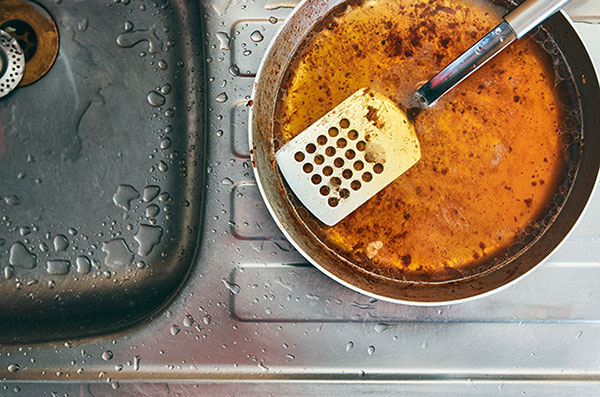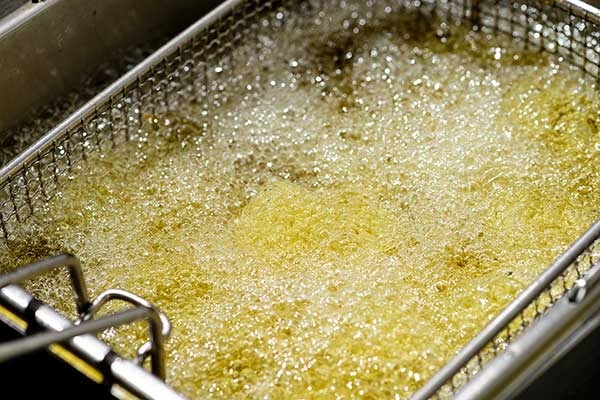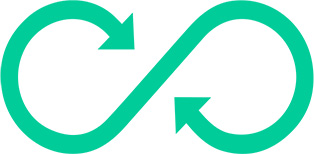Restaurant grease is a major headache for foodservice businesses that don’t have a proper storage and disposal plan.
Having worked in various establishments, from fast food to fine dining, I found that you need to focus on grease management, no matter the size or star.
Every state has there own set of rules related to grease production that dictate how food businesses need to dispose of their grease. Your local water authority enforces these rules and carries out inspections to ensure local businesses follow best practices.
Today I will take yours through the various types of grease produced in commercial kitchens and what you need to do to stay compliant in today’s post.
Restaurant Fats, Oils, & Grease (FOG)
Fats, oils, and grease – often referred to as FOG, are produced during food production. If there is any food preparation, cooking, or cleaning carried out in the kitchen, you will produce grease and other fatty waste.
You produce FOG making dairy products, meat, pizza (there’s lots of oil in the dough), salad dressings, and coffee beans. If you roll a piece of paper over a bit of food, you’re probably leaving some fatty residue on it. When you wash that into a sink, it leads to water contamination and blockages.
Yellow grease (UCO)
Yellow grease, or used cooking oil (UCO), is created during the cooking process and cannot be reused. You will create yellow grease in deep fat fryers and chip fryers. After cooking the grease you need to store grease in a container or barrel for collection.
Depending on how you dispose of grease you may need to hire a grease hire to collect and recycle the grease according to state regulations.
Brown trap grease
Brown grease is waste collected from grease control devices, also known as grease traps or interceptors. Grease traps collect fats, oils, and grease at the source and prevent it from entering your pipes and the sewer.
Brown grease is more difficult to collect than used cooking oils unless you have the right type of grease trap. Unlike yellow grease, the amount of brown grease you produce will depend on your restaurant and menu.
Like yellow grease, Brown trap grease is a pollutant that can cause severe damage to the environment and public health if it reaches the sewers.
Disposing of your grease
If you decide to clean the grease trap in-house, you must log each cleaning and dispose of the grease in a waste container. Unless you have a very small grease trap, you should hire an approved hauler to remove and recycle the grease.
Your grease hauler will clean the traps and use pumps to remove the contents. They will also scrape the sides to remove the tougher grease that has begun to harden.
Remember, it’s your responsibility to ensure that the grease hauler cleans your trap according to regulations. So be sure to give it a thorough check before they leave.
Once your hauler has finished the job, they must provide you a service report. You will need to submit this manifest to your local water authority to prove that you are maintaining your grease control devices.
Did you know that recycled grease can be turned into animal feed and biodiesel?
Restaurant grease maintenance checklist
- Always use, store and dispose of grease according to state regulations
- Store Yellow Grease (UCO) in watertight containers
- Keep collection bins/barrels away from drains and protected from traffic and weather
- Keep collection bins in areas where it is easy to contain grease spills.
- Frequently clean hood filters in sinks that flow into grease traps attached to the sewer.
- Use low emulsion-type soaps for floor and hood cleaning.
- Connect trash compactors to the sanitary sewer or place them on pads with a drain connected to the sewer.
Grease compliance regulations
The Environmental Protection Agency oversees the country’s 50 states through the Clean Water Act.
Each state has its own legislation and reporting methods, which local water authorities use as a guide for enforcing grease rules.
No matter the location of your foodservice business, your water authority requires you to have a functioning grease trap. Remember, if you contribute to a major blockage in your area, you will be subject to fines and possible closure.
So you must manage your kitchen grease effectively and be sure to check that your grease control device is functioning correctly.
Restaurants that don’t get routine grease trap cleanings are at a much greater risk of pipe blockages than those that do. Without routine cleaning, you are risking foul odors, overflows, and contamination if your food and water.
Hiring a grease hauler
You need to ensure that you find a suitable waste contractor who has been licensed by the relevant local authority. Make sure that your operator of choice presents you with a certificate of disposal. Documentation should contain the following:
- Name and address of Licensee (FSE)
- Name and address of the waste contractor
- Vehicle Registration Number of waste contractor’s vehicle
- Waste Permit Number
- The number of Fats, Oil, and Grease (FOG) collected by the waste contractor
- Name and address of facility used for the disposal of the waste
- The disposal certificate shall have a unique reference number







